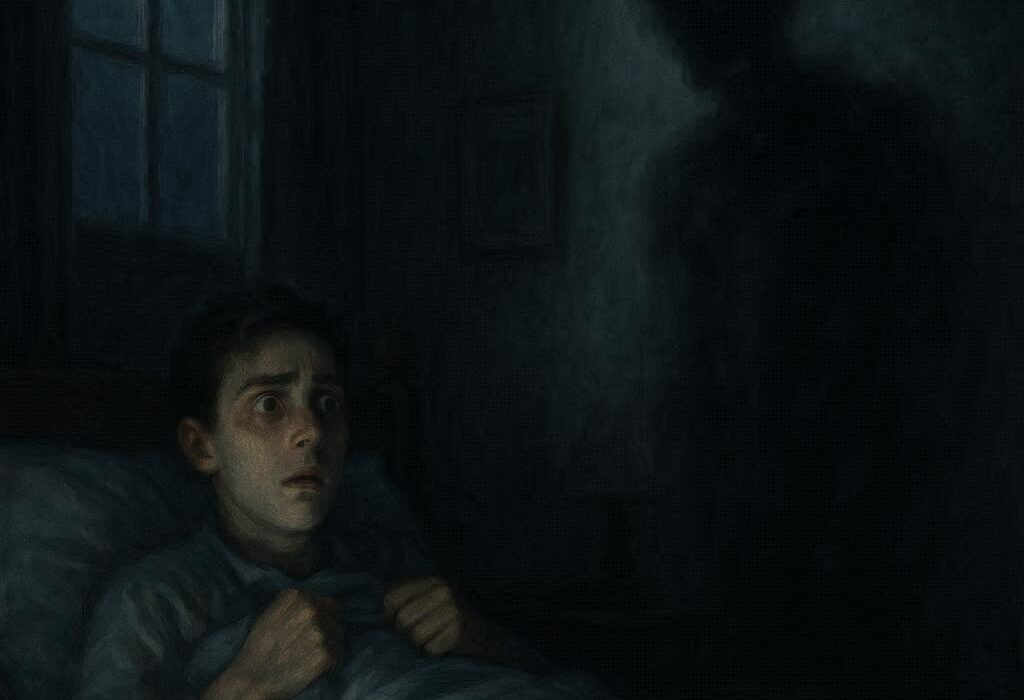Every night, just as the world fades into darkness, another world opens its gates. It is not bound by the laws of gravity or the logic of time. Here, memories blend with fiction, fears masquerade as symbols, and impossible things feel deeply, undeniably real. It is a realm where you can fly without wings, speak to the dead, or relive moments long past. You close your eyes, and suddenly, you’re somewhere else.
Welcome to your dream world—an extraordinary theater hidden behind your eyelids, curated not by some celestial playwright, but by your own mind.
For centuries, humans have wondered what these nightly journeys mean. Are dreams messages from the gods? Fragments of repressed thoughts? Random firings of a sleeping brain? Or are they something more—a profound key to the truth of who we are?
Modern neuroscience, psychology, and cognitive science are slowly peeling back the veil. And what they’re finding is nothing short of astonishing: your dreams may be the most honest part of you.
The Ancient Enigma of Dreams
From the dusty tombs of pharaohs to the scrolls of Chinese philosophers, dreams have always carried sacred weight. The ancient Egyptians believed dreams were divine messages, sent by the gods to guide or warn. In Greece, temples known as asclepieions invited seekers to sleep inside in hopes of healing visions.
Across cultures and centuries, dreams were never just background noise. They were prophecies, omens, glimpses into the future, or keys to the soul.
Then came the modern age—and with it, science.
Sigmund Freud, the father of psychoanalysis, changed everything with his 1899 book The Interpretation of Dreams. He proposed that dreams were the “royal road to the unconscious.” To Freud, dreams concealed repressed desires—especially taboo ones—beneath symbolic disguises. A dream of climbing a ladder might represent ambition. A snake could symbolize something more primal.
Carl Jung, Freud’s student turned rival, saw dreams differently. For him, they weren’t just personal—they were collective. He believed they tapped into a vast well of shared archetypes, connecting us all to a greater psychological narrative.
Freud and Jung laid the psychological foundation. But they lacked the tools to peer into the brain itself. Today, neuroscience is doing just that.
What Happens to Your Brain When You Dream?
To understand dreams, we first need to understand sleep. The human brain cycles through several stages of sleep, from light dozing to deep, restorative slumber. But the magic of dreams mostly happens in a phase called REM sleep, short for Rapid Eye Movement.
During REM sleep, your brain behaves paradoxically. It becomes incredibly active—almost as active as it is when you’re awake. Your eyes dart rapidly beneath your eyelids. Your breathing becomes irregular. Your heart rate speeds up. And most notably, your muscles become temporarily paralyzed, a protective mechanism to keep you from physically acting out your dreams.
This is the dream factory’s primetime.
Brain scans during REM show heightened activity in the amygdala, the emotional center of the brain, and the hippocampus, which is vital for memory. Meanwhile, the prefrontal cortex, the part responsible for logic, planning, and self-awareness, dims down.
This unique combination—high emotion, active memory, low logic—creates the perfect storm for bizarre, symbolic, deeply personal dream narratives.
Dreams: Your Brain’s Emotional Sandbox
One of the most important things dreams do is help you process emotion.
Research has shown that when people are deprived of REM sleep, they become more irritable, anxious, and emotionally volatile. Conversely, when we dream—especially after emotional or traumatic experiences—our brains seem to digest the feelings, softening their impact.
This is why dreams can be filled with heightened feelings. Ever notice how a simple dream can feel devastating or euphoric, even when it makes no logical sense? That’s because your brain is running emotional simulations. It’s replaying scenes from your life, mixing them with metaphors, and allowing you to work through feelings without the weight of waking consequences.
This is not poetic speculation—it’s science. Studies have found that people often dream about emotionally intense experiences within a day or two of them happening. These dreams can be literal or symbolic, but they often revisit the same emotional terrain.
It’s as if the brain, under the cover of night, is saying: “Let’s sit with this a little longer.”
Memory and Meaning-Making in the Dark
Another crucial function of dreams is memory consolidation. Each night, your brain sifts through the clutter of your day, deciding what to keep and what to discard. Dreams are part of that process.
But this isn’t just about data storage. It’s about storytelling.
Your mind takes bits and pieces of your waking life—snippets of conversations, sights, worries, hopes—and reweaves them into dream narratives. Often, these stories are fragmented, strange, nonlinear. But there is structure. There is theme.
You might dream of being late for an exam—not because you’re a student anymore, but because you’re feeling unprepared in real life. You might dream of an ex-lover—not because you miss them, but because your brain is processing feelings of rejection, vulnerability, or nostalgia.
Dreams rarely offer direct answers. But they speak in metaphors. And if you learn their language, they begin to whisper truths.
Nightmares: Wounds That Speak
Not all dreams are gentle. Sometimes, the mind drags us through storms: falling from a height, being chased by a shadowy figure, reliving a painful moment from the past. These are nightmares, and they are often misunderstood.
While terrifying, nightmares serve an evolutionary purpose. They are your brain’s way of rehearsing danger. In ancient times, dreaming of being hunted or attacked might help someone survive by mentally preparing them for threats. Even today, our dreams simulate conflict—social rejection, failure, betrayal—not to torture us, but to train us emotionally.
In people with trauma, however, nightmares can become chronic. PTSD survivors often relive moments of trauma night after night. These are not just dreams—they are psychological flashbacks. Yet, even here, the brain may be trying to process, to integrate, to heal.
Lucid dreaming therapy and imagery rehearsal techniques are now being used to help people reshape their nightmares, rewriting the ending to regain control.
Lucid Dreams: When You Wake Up Inside the Dream
Imagine this: you’re in a dream, and suddenly, you realize you’re dreaming. You look around at the surreal world, smile, and say, “I know this isn’t real.” Then you decide to fly. And you do.
This is lucid dreaming, and it is one of the most mysterious abilities of the human mind.
In lucid dreams, the dreamer becomes aware of the dream state and can sometimes control the dream’s direction. These aren’t fantasies—they’re real experiences documented in lab settings. EEG studies have shown that during lucid dreaming, parts of the prefrontal cortex “wake up,” even as the rest of the brain stays in REM.
Lucid dreaming has fascinated monks, psychologists, and scientists alike. Some people train themselves to lucid dream for creativity, exploration, or therapy. It raises stunning questions: if your mind can create an entire reality that feels real, what else can it do?
Lucid dreams are proof that consciousness is not a binary switch—on or off—but a spectrum, one we’re only beginning to understand.
Recurring Dreams: Your Mind’s Unfinished Business
Some dreams return again and again. Maybe you’ve dreamt multiple times of being lost, falling, taking an exam, or arriving late to something important. These recurring dreams are not coincidences—they are persistent signals from your subconscious.
Researchers believe recurring dreams reflect unresolved psychological conflicts. They’re the brain’s version of a “check engine” light. Until the core issue is addressed—be it anxiety, insecurity, or trauma—the dream keeps playing on a loop.
But these dreams also offer a gift. If you learn to listen, if you trace the theme and emotion, they can point you to the very thing you’ve been avoiding. Recurring dreams are not your enemy—they are your mind’s stubborn way of saying: “Pay attention.”
Culture, Creativity, and the Dream World
Dreams have always been sources of inspiration. Mary Shelley’s Frankenstein was born from a dream. So was Paul McCartney’s melody for Yesterday. Artists, poets, and inventors often cite dreams as muses.
This isn’t magic—it’s neuroscience. During dreaming, your brain can make connections it might never make while awake. The prefrontal “critic” that keeps your ideas orderly is offline, so creativity runs wild.
Dreams also reflect culture. In Western societies, people tend to dream more about individual concerns. In collectivist cultures, dreams more often involve family and community. Some cultures treat dreams as spiritual experiences. Others view them as psychological insights.
No matter where you’re from, dreams are personal and universal at once—proof that our minds are both uniquely our own and fundamentally human.
So What Do Dreams Really Say About Your Mind?
They say you are always becoming.
Dreams reveal not just what you think, but how you feel—deep beneath the surface. They process your pain, rehearse your challenges, celebrate your hopes, and sometimes frighten you into self-awareness. They are your emotional immune system, your mental canvas, your midnight therapist.
They also whisper something even deeper: that your mind is not merely a machine of logic, but a soul that tells stories.
You are not just a thinker. You are a dreamer. And your dreams are not fluff. They are function. They are not distractions. They are directions. They are not illusions. They are intelligence—woven in the language of symbol, feeling, and metaphor.
Final Thoughts: The Theater of You
Tonight, when you lay your head down, remember: something miraculous is about to happen.
Your eyes will close. The lights of the world will fade. But behind those eyelids, your mind will begin its nightly masterpiece.
You might revisit a childhood street. You might meet someone long gone. You might fly, or fall, or fight, or laugh in ways you haven’t in years.
And when you wake, you might not remember. But your mind will.
Because every night, you write yourself anew—in dreams.
And if that doesn’t prove how extraordinary the human mind is, nothing will.






